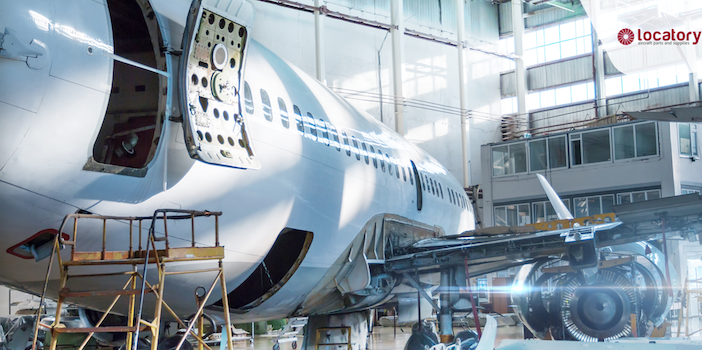The aviation industry has been experiencing challenge after challenge over the last couple of years. And yet it was able to show resilience in the face of adversity. While we continue to see a gradual recovery of the industry, there still have been some challenges in 2022 that have had a significant impact on various business segments of the aviation industry, aircraft parts procurement included.
2022 was marked by a fragile supply chain. Once airlines began ramping-up the operations, maintenance activity also picked up in most parts of the world. Aircraft heavy checks that had been put on hold during the Covid-19 pandemic have become necessary yet again, increasing the demand for aircraft parts and materials. Unfortunately, during the global aviation crisis, to save much-needed cash, airlines and MRO providers focused on using internal resources first, thus letting their inventories decrease. Now the aircraft are returning to operations at a rapid pace, businesses are struggling to find the required materials.
During the global pandemic, airlines and aircraft operators delayed or even dropped their new aircraft orders. This forced suppliers to be left with stranded inventory, which eventually prompted them to suspend production and lay people off. In many cases, returning to normal operations for such manufacturers is a long and costly process that further affects the whole aviation industry and its supply chain.
Additionally, the order backlog on industry giants Airbus and Boeing forces airlines to continue depending on the current fleet, which requires more upkeep than new aircraft would. At the end of Q3 2022, the Airbus order backlog stood at 7,294, while Boeing had a backlog of over 4,300.
This challenge of a fragile supply chain, halted aircraft parts manufacturing, and long backlogs means that the aircraft part market has noticed a significant growth period. In 2019, the global aircraft parts market was valued at US$537.04 billion and is expected to reach US$826.01 billion by 2028 at a CAGR of 4.9% between 2021 and 2028.
The global aircraft engine market size is expected to show even faster development. In 2021 it was valued at US$45.50billion, and it is expected to reach a value of US$104.65billion by 2028, at a CAGR of 10.89% between 2022 and 2028.
The aircraft part market is steadily growing. Increasing interest from airlines, aircraft operators and lessors impacts not only original aircraft part manufacturers, but also secondary aircraft part marketplaces. Over the last couple of years, we saw a significant increase in clientele interest, driven in part by the continuous expansion of our spare parts database. Each month it grows by 15% allowing for a wider variety of parts to be available.
About the author
Toma Matutyte is CEO of Locatory.com, an aviation marketplace for aircraft spare parts and repair capabilities and a family member of Avia Solutions Group, a specialist in end-to-end capacity solutions for passenger and cargo airlines worldwide.





